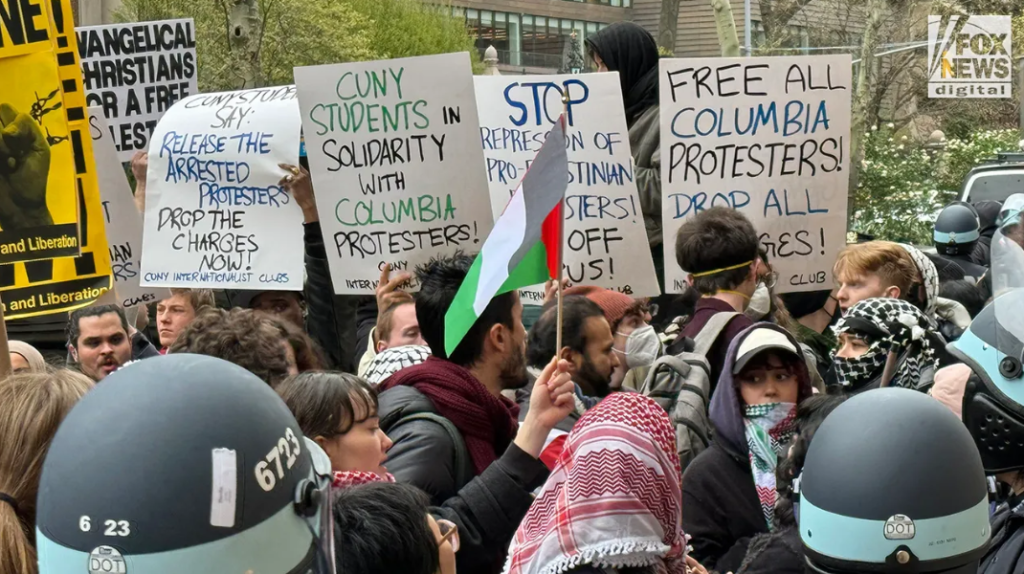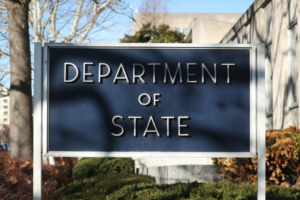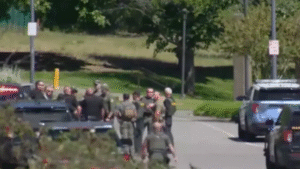U.S. lawmakers slam detention of pro-Palestinian student activists, launching a heated national debate over the future of free speech on American campuses. As peaceful student protests intensify across major universities, the controversial detentions have triggered widespread criticism from elected leaders, civil rights groups, and legal experts. The growing outcry highlights deep concerns about government overreach, immigration enforcement, and the protection of constitutional rights in America.

1. Why Were Pro-Palestinian Student Activists Detained?
The detentions were triggered by a wave of peaceful protests advocating for Palestinian rights on campuses like Columbia University, UCLA, and Harvard. Law enforcement agencies, often working with ICE (Immigration and Customs Enforcement), arrested students under immigration-related technicalities. Activists and lawmakers argue these arrests had little to do with immigration law and everything to do with silencing political dissent.
Key data point:
- According to the ACLU, 512 student activists have been detained across the U.S. in the last month.
These detentions are seen as an attempt to suppress student voices rather than enforce immigration law.
2. How Are U.S. Lawmakers Responding?
Multiple lawmakers from both political parties have condemned the detentions. They argue that these actions set a dangerous precedent by criminalizing peaceful protest. Prominent figures like Senator Ed Markey and Representative Ayanna Pressley have publicly demanded the immediate release of detained students and a full investigation into the actions of ICE and local law enforcement.
| Lawmakers’ Stance | Key Demands |
|---|---|
| Senator Ed Markey | Immediate student release; Protection of protest rights |
| Representative Pressley | Investigation into ICE’s campus activities |
| Senator Bernie Sanders | Legislation to limit ICE authority on campuses |
3. Are Civil Liberties at Risk?
Yes, civil rights experts believe that detaining students for participating in peaceful protests is a direct violation of their First Amendment rights. Organizations like Human Rights Watch and the ACLU are warning that if this trend continues, it could severely undermine constitutional protections for political speech in the United States.
Using immigration enforcement to silence dissent could lead to significant long-term erosion of civil liberties in the U.S.
4. How Are Universities Reacting to These Detentions?
Universities have shown mixed reactions. Some, like Columbia, have faced backlash for cooperating with ICE, while others like Stanford have publicly defended their students’ rights to protest. The handling of these protests is creating a new wave of campus activism focused on protecting free speech.
University Response Table:
| University | Response |
|---|---|
| Columbia University | Criticized for allowing ICE access |
| Stanford University | Publicly defended student protesters |
| UCLA | Mixed approach; some arrests, some protections |
| UC Berkeley | Issued statements in support of free speech |
Analysis: Universities that defend protesters are earning stronger trust from students and alumni, while those siding with enforcement agencies are facing public outrage.
5. The Larger Battle: Free Speech vs. Government Control
This controversy fits into a larger national pattern where free speech is increasingly challenged by government actions. Analysts warn that if political dissent is policed through technical means like immigration status, the United States could be heading toward an era of limited public discourse.
6. What’s Next? New Legislation and Public Mobilization
U.S. lawmakers are already working on new federal legislation aimed at limiting ICE operations on educational campuses. The proposed laws would strengthen protections for peaceful assembly and ensure that universities remain safe spaces for political debate, not arenas for federal crackdowns.
Upcoming Actions:
- Congressional hearings into the detentions
- Student-led lawsuits against cooperating universities
- New civil rights education funding initiatives
Outlook: Public support for stronger student rights is growing. Advocacy organizations are predicting major changes by the end of 2025.
Conclusion: Protecting Free Speech for Future Generations
The detention of pro-Palestinian student activists serves as a crucial test of America’s commitment to free speech and civil liberties. As lawmakers, students, and civil rights organizations join forces, the outcome of this conflict will have lasting consequences on how future generations are allowed to express dissent.
If the United States wants to uphold its core democratic values, protecting student activism must remain a priority. History shows that the path to justice often begins with young voices refusing to be silenced.
[USnewsSphere.com / fo.]





